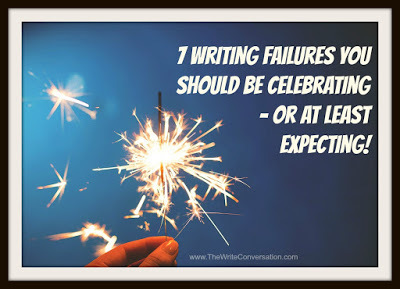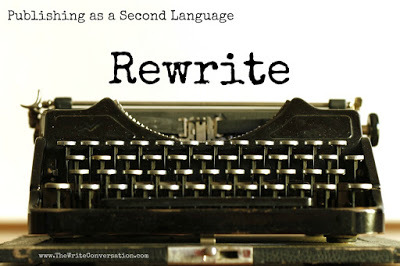Edie Melson's Blog, page 354
January 19, 2016
How to be Friends with Fellow Writers & Speakers
by Lucinda Secrest McDowell @LucindaSMcDowel
 I just returned home from my annual retreat with two dozen other authors and speakers—a time where we unplug and pray and share life with one another as we listen to God for the upcoming new year.
I just returned home from my annual retreat with two dozen other authors and speakers—a time where we unplug and pray and share life with one another as we listen to God for the upcoming new year.
In reflecting on this time, I realized that having true friends “in the business” is a privilege not to be taken for granted.
While I have certainly not always been this kind of friend, I’d like to offer a dozen principles on nurturing such relationships.
12 Tips to Nurture Friendships with Fellow Writers/SpeakersNever Compare – I know it’s hard to refrain from comparisons, but competition can kill a friendship. Please recognize that you both have strengths and unique stories to share. Don’t try to imitate her professional journey or personal style. Be confident in who you are and what you have to offer.Keep Confidences – Nothing destroys a friendship (personal or professional) faster than telling secrets. Be a person your friend can trust, whether she talks to you about her new proposal, her $ advance, or a family struggle. Promote your friend publicly.Promote Your Friend Publicly - Praise them on social media and recognize their contribution to your life (or even your work) when appropriate. Be their cheerleader.Brainstorm Together – One great service we can perform with our friends in the publishing industry is brainstorming over titles or plot devices or platform expanding. Listen. Then, be an authentic soundboard and
always be kind
.Refer Them When Appropriate – Chances are you may one day be asked to speak at an event (or write a book) on a theme that is not your forte, but fits your friend perfectly. How gracious if you recommend him as an even better expert on the subject.Plan Appointments – If you are both going to be at the same convention, sharing a platform, or even an airport, plan in advance a time for one-to-one catch up if at all possible. This shows how much you value keeping in touch.Share their Joys – Make a deliberate effort to congratulate them on a new book release or an award nomination or win. Chances are nobody “at home” noticed, so your words will be especially appreciated. After all, this friend “knows-what-your-life-is-like.”
Promote your friend publicly.Promote Your Friend Publicly - Praise them on social media and recognize their contribution to your life (or even your work) when appropriate. Be their cheerleader.Brainstorm Together – One great service we can perform with our friends in the publishing industry is brainstorming over titles or plot devices or platform expanding. Listen. Then, be an authentic soundboard and
always be kind
.Refer Them When Appropriate – Chances are you may one day be asked to speak at an event (or write a book) on a theme that is not your forte, but fits your friend perfectly. How gracious if you recommend him as an even better expert on the subject.Plan Appointments – If you are both going to be at the same convention, sharing a platform, or even an airport, plan in advance a time for one-to-one catch up if at all possible. This shows how much you value keeping in touch.Share their Joys – Make a deliberate effort to congratulate them on a new book release or an award nomination or win. Chances are nobody “at home” noticed, so your words will be especially appreciated. After all, this friend “knows-what-your-life-is-like.”
 Endorse their work.Endorse their Work – If asked and you are able, seek to endorse their books or give a speaking endorsement for their website. “Do send me the manuscript and I will consider writing an endorsement if at all possible.”Don’t Use Them – Yes, our professional friends have all sorts of contacts and while there is nothing wrong with occasionally asking them to mention us to that event planner or editor, try not to make this a habit or certainly not the basis of your friendship.Keep Expectations Loose – Your friend is your friend but she is also friends with many other authors and speakers. So don’t expect to always be included in her gatherings and don’t assume rejection when you see her posts on social media.Welcome New People in Your Life – There will always be close friends, but don’t gravitate to them exclusively at professional events. Reach out to welcome new people into your life and expect a blessing. Everyone doesn’t have to be a ‘best friend.’Pray for Them – And by that, I mean don’t justsay you will pray for them, do it! If possible, pray over specific requests (or dates or deadlines) that they share with you. Though this is listed last, it is probably the most important ‘glue’ for your relationship. We grow to love those for whom we pray.
Endorse their work.Endorse their Work – If asked and you are able, seek to endorse their books or give a speaking endorsement for their website. “Do send me the manuscript and I will consider writing an endorsement if at all possible.”Don’t Use Them – Yes, our professional friends have all sorts of contacts and while there is nothing wrong with occasionally asking them to mention us to that event planner or editor, try not to make this a habit or certainly not the basis of your friendship.Keep Expectations Loose – Your friend is your friend but she is also friends with many other authors and speakers. So don’t expect to always be included in her gatherings and don’t assume rejection when you see her posts on social media.Welcome New People in Your Life – There will always be close friends, but don’t gravitate to them exclusively at professional events. Reach out to welcome new people into your life and expect a blessing. Everyone doesn’t have to be a ‘best friend.’Pray for Them – And by that, I mean don’t justsay you will pray for them, do it! If possible, pray over specific requests (or dates or deadlines) that they share with you. Though this is listed last, it is probably the most important ‘glue’ for your relationship. We grow to love those for whom we pray.
What have you found to be the key ingredient for friendship with other writers?
What has been the difficult part of maintaining such a relationship?
I’d love to hear from you. Meanwhile, go drop your friend a note, ring them up, or send an email to say you are thinking of them as they begin a new year of writing and speaking. And I hope I will see you somewhere along the way in 2016!
TWEETABLESHow to be Friends with Fellow Writers/Speakers - @LucindaSMcDowel on @EdieMelson (Click to Tweet)
12 Tips to Nurture Friendships with other Writers & Speakers - @LucindaSMcDowel (Click to Tweet)
 Lucinda Secrest McDowell, M.T.S., is the author of 11 books, contributing author to 25 books, and has published in more than 50 magazines. A graduate of Gordon-Conwell Theological Seminary and Furman University, she studied at the Wheaton Graduate School of Communication and served as Communications Specialist for the Lausanne Committee for World Evangelization (Thailand) and Editor for Billy Graham’s International Conference for Itinerant Evangelists (Netherlands). A member of Advanced Writers and Speakers Association (AWSA), she has received “Writer of the Year” awards from both Mt. Hermon and Blue Ridge Writers Conferences. Cindy speaks internationally through her ministry “Encouraging Words” and co-directs the New England Christian Writers Retreat. Known for her ability to convey deep truth in practical and winsome ways, she writes from “Sunnyside” cottage in New England. Visit her online at www.EncouragingWords.net
Lucinda Secrest McDowell, M.T.S., is the author of 11 books, contributing author to 25 books, and has published in more than 50 magazines. A graduate of Gordon-Conwell Theological Seminary and Furman University, she studied at the Wheaton Graduate School of Communication and served as Communications Specialist for the Lausanne Committee for World Evangelization (Thailand) and Editor for Billy Graham’s International Conference for Itinerant Evangelists (Netherlands). A member of Advanced Writers and Speakers Association (AWSA), she has received “Writer of the Year” awards from both Mt. Hermon and Blue Ridge Writers Conferences. Cindy speaks internationally through her ministry “Encouraging Words” and co-directs the New England Christian Writers Retreat. Known for her ability to convey deep truth in practical and winsome ways, she writes from “Sunnyside” cottage in New England. Visit her online at www.EncouragingWords.net
Links www.NewEnglandChristianWritersRetreat.comBlog/website www.EncouragingWords.net
 I just returned home from my annual retreat with two dozen other authors and speakers—a time where we unplug and pray and share life with one another as we listen to God for the upcoming new year.
I just returned home from my annual retreat with two dozen other authors and speakers—a time where we unplug and pray and share life with one another as we listen to God for the upcoming new year. In reflecting on this time, I realized that having true friends “in the business” is a privilege not to be taken for granted.
While I have certainly not always been this kind of friend, I’d like to offer a dozen principles on nurturing such relationships.
12 Tips to Nurture Friendships with Fellow Writers/SpeakersNever Compare – I know it’s hard to refrain from comparisons, but competition can kill a friendship. Please recognize that you both have strengths and unique stories to share. Don’t try to imitate her professional journey or personal style. Be confident in who you are and what you have to offer.Keep Confidences – Nothing destroys a friendship (personal or professional) faster than telling secrets. Be a person your friend can trust, whether she talks to you about her new proposal, her $ advance, or a family struggle.
 Promote your friend publicly.Promote Your Friend Publicly - Praise them on social media and recognize their contribution to your life (or even your work) when appropriate. Be their cheerleader.Brainstorm Together – One great service we can perform with our friends in the publishing industry is brainstorming over titles or plot devices or platform expanding. Listen. Then, be an authentic soundboard and
always be kind
.Refer Them When Appropriate – Chances are you may one day be asked to speak at an event (or write a book) on a theme that is not your forte, but fits your friend perfectly. How gracious if you recommend him as an even better expert on the subject.Plan Appointments – If you are both going to be at the same convention, sharing a platform, or even an airport, plan in advance a time for one-to-one catch up if at all possible. This shows how much you value keeping in touch.Share their Joys – Make a deliberate effort to congratulate them on a new book release or an award nomination or win. Chances are nobody “at home” noticed, so your words will be especially appreciated. After all, this friend “knows-what-your-life-is-like.”
Promote your friend publicly.Promote Your Friend Publicly - Praise them on social media and recognize their contribution to your life (or even your work) when appropriate. Be their cheerleader.Brainstorm Together – One great service we can perform with our friends in the publishing industry is brainstorming over titles or plot devices or platform expanding. Listen. Then, be an authentic soundboard and
always be kind
.Refer Them When Appropriate – Chances are you may one day be asked to speak at an event (or write a book) on a theme that is not your forte, but fits your friend perfectly. How gracious if you recommend him as an even better expert on the subject.Plan Appointments – If you are both going to be at the same convention, sharing a platform, or even an airport, plan in advance a time for one-to-one catch up if at all possible. This shows how much you value keeping in touch.Share their Joys – Make a deliberate effort to congratulate them on a new book release or an award nomination or win. Chances are nobody “at home” noticed, so your words will be especially appreciated. After all, this friend “knows-what-your-life-is-like.”
 Endorse their work.Endorse their Work – If asked and you are able, seek to endorse their books or give a speaking endorsement for their website. “Do send me the manuscript and I will consider writing an endorsement if at all possible.”Don’t Use Them – Yes, our professional friends have all sorts of contacts and while there is nothing wrong with occasionally asking them to mention us to that event planner or editor, try not to make this a habit or certainly not the basis of your friendship.Keep Expectations Loose – Your friend is your friend but she is also friends with many other authors and speakers. So don’t expect to always be included in her gatherings and don’t assume rejection when you see her posts on social media.Welcome New People in Your Life – There will always be close friends, but don’t gravitate to them exclusively at professional events. Reach out to welcome new people into your life and expect a blessing. Everyone doesn’t have to be a ‘best friend.’Pray for Them – And by that, I mean don’t justsay you will pray for them, do it! If possible, pray over specific requests (or dates or deadlines) that they share with you. Though this is listed last, it is probably the most important ‘glue’ for your relationship. We grow to love those for whom we pray.
Endorse their work.Endorse their Work – If asked and you are able, seek to endorse their books or give a speaking endorsement for their website. “Do send me the manuscript and I will consider writing an endorsement if at all possible.”Don’t Use Them – Yes, our professional friends have all sorts of contacts and while there is nothing wrong with occasionally asking them to mention us to that event planner or editor, try not to make this a habit or certainly not the basis of your friendship.Keep Expectations Loose – Your friend is your friend but she is also friends with many other authors and speakers. So don’t expect to always be included in her gatherings and don’t assume rejection when you see her posts on social media.Welcome New People in Your Life – There will always be close friends, but don’t gravitate to them exclusively at professional events. Reach out to welcome new people into your life and expect a blessing. Everyone doesn’t have to be a ‘best friend.’Pray for Them – And by that, I mean don’t justsay you will pray for them, do it! If possible, pray over specific requests (or dates or deadlines) that they share with you. Though this is listed last, it is probably the most important ‘glue’ for your relationship. We grow to love those for whom we pray.What have you found to be the key ingredient for friendship with other writers?
What has been the difficult part of maintaining such a relationship?
I’d love to hear from you. Meanwhile, go drop your friend a note, ring them up, or send an email to say you are thinking of them as they begin a new year of writing and speaking. And I hope I will see you somewhere along the way in 2016!
TWEETABLESHow to be Friends with Fellow Writers/Speakers - @LucindaSMcDowel on @EdieMelson (Click to Tweet)
12 Tips to Nurture Friendships with other Writers & Speakers - @LucindaSMcDowel (Click to Tweet)
 Lucinda Secrest McDowell, M.T.S., is the author of 11 books, contributing author to 25 books, and has published in more than 50 magazines. A graduate of Gordon-Conwell Theological Seminary and Furman University, she studied at the Wheaton Graduate School of Communication and served as Communications Specialist for the Lausanne Committee for World Evangelization (Thailand) and Editor for Billy Graham’s International Conference for Itinerant Evangelists (Netherlands). A member of Advanced Writers and Speakers Association (AWSA), she has received “Writer of the Year” awards from both Mt. Hermon and Blue Ridge Writers Conferences. Cindy speaks internationally through her ministry “Encouraging Words” and co-directs the New England Christian Writers Retreat. Known for her ability to convey deep truth in practical and winsome ways, she writes from “Sunnyside” cottage in New England. Visit her online at www.EncouragingWords.net
Lucinda Secrest McDowell, M.T.S., is the author of 11 books, contributing author to 25 books, and has published in more than 50 magazines. A graduate of Gordon-Conwell Theological Seminary and Furman University, she studied at the Wheaton Graduate School of Communication and served as Communications Specialist for the Lausanne Committee for World Evangelization (Thailand) and Editor for Billy Graham’s International Conference for Itinerant Evangelists (Netherlands). A member of Advanced Writers and Speakers Association (AWSA), she has received “Writer of the Year” awards from both Mt. Hermon and Blue Ridge Writers Conferences. Cindy speaks internationally through her ministry “Encouraging Words” and co-directs the New England Christian Writers Retreat. Known for her ability to convey deep truth in practical and winsome ways, she writes from “Sunnyside” cottage in New England. Visit her online at www.EncouragingWords.net Links www.NewEnglandChristianWritersRetreat.comBlog/website www.EncouragingWords.net
Published on January 19, 2016 01:00
January 18, 2016
Don’t Be Legalistic About Social Media
by Edie Melson @EdieMelson
 Social media stresses a lot of people out, but it doesn’t have to.
Social media stresses a lot of people out, but it doesn’t have to.
One of the biggest issues is that people tend to approach it with a have-to-do, legalistic mindset. Truthfully, because successful social media is all about relationship building, it works best when we treat it organically.
Because it’s easier to manage with a set of guidelines:Be consistent.Avoid self promotion.
It’s easy to get caught up in the to do list and forget the point.They’re not numbers, they’re people.
 They're not numbers, they're people.We even begin to judge the worth of what we have to say by those numbers. Let me remind you why you’re doing what you’re doing. Why you sweat over a keyboard, struggling to find the right word. Why you risk rejection by submitting those carefully crafted words to editors, agents and contest judges.
They're not numbers, they're people.We even begin to judge the worth of what we have to say by those numbers. Let me remind you why you’re doing what you’re doing. Why you sweat over a keyboard, struggling to find the right word. Why you risk rejection by submitting those carefully crafted words to editors, agents and contest judges.
We’re doing it because we want to make a difference in the world around us—a world made up of people. If all we’re looking for is higher numbers, we’ve missed the point. We’ve set a course that follows certain frustration and ultimate failure. So if it’s not for the numbers, then what’s the point? Why even bother with social media?
The point is what the numbers represent…the point is the individuals who can be impacted by what we write…challenged by what we say…changed by what we share.
When I get caught up chasing the numbers, the significance of what I’m doing diminishes. But when I step away from the race and concentrate on who I’m writing for and who I’m writing to, things fall back into place.
I’m first and foremost a writer. For me, social media is a tool. It’s the means to an end. It helps me find my audience. But when I begin to measure my worth as a writer through the numbers of social media, I’ve gotten off course.
 My worth is not determined by my numbers.My worth is not determined by my numbers.
My worth is not determined by my numbers.My worth is not determined by my numbers.
For me, the blog posts that mean the most are rarely the ones that generate the highest numbers. The ones that mean the most are those that help someone, that connect the dots for an individual who’s hurting or help someone who’s frustrated finally see the light. It’s when I pen those words that I feel true satisfaction in my calling.
Here are some other things we need to remember:It’s God who provides the reach, we only need to be faithful to do our part.We build relationships one person at a time.I remind myself that it’s not about me.
How about you? How do you avoid the trap of legalistic social media? Be sure to share your thoughts in the comments section below.
Don’t forget to join the conversation!Blessings,Edie
TWEETABLESTips to keep from being legalist about #socialmedia -@EdieMelson (Click to Tweet)
Our #socialmedia numbers are so much more – they’repeople! @EdieMelson (Click to Tweet)
 Social media stresses a lot of people out, but it doesn’t have to.
Social media stresses a lot of people out, but it doesn’t have to. One of the biggest issues is that people tend to approach it with a have-to-do, legalistic mindset. Truthfully, because successful social media is all about relationship building, it works best when we treat it organically.
Because it’s easier to manage with a set of guidelines:Be consistent.Avoid self promotion.
It’s easy to get caught up in the to do list and forget the point.They’re not numbers, they’re people.
 They're not numbers, they're people.We even begin to judge the worth of what we have to say by those numbers. Let me remind you why you’re doing what you’re doing. Why you sweat over a keyboard, struggling to find the right word. Why you risk rejection by submitting those carefully crafted words to editors, agents and contest judges.
They're not numbers, they're people.We even begin to judge the worth of what we have to say by those numbers. Let me remind you why you’re doing what you’re doing. Why you sweat over a keyboard, struggling to find the right word. Why you risk rejection by submitting those carefully crafted words to editors, agents and contest judges.We’re doing it because we want to make a difference in the world around us—a world made up of people. If all we’re looking for is higher numbers, we’ve missed the point. We’ve set a course that follows certain frustration and ultimate failure. So if it’s not for the numbers, then what’s the point? Why even bother with social media?
The point is what the numbers represent…the point is the individuals who can be impacted by what we write…challenged by what we say…changed by what we share.
When I get caught up chasing the numbers, the significance of what I’m doing diminishes. But when I step away from the race and concentrate on who I’m writing for and who I’m writing to, things fall back into place.
I’m first and foremost a writer. For me, social media is a tool. It’s the means to an end. It helps me find my audience. But when I begin to measure my worth as a writer through the numbers of social media, I’ve gotten off course.
 My worth is not determined by my numbers.My worth is not determined by my numbers.
My worth is not determined by my numbers.My worth is not determined by my numbers.For me, the blog posts that mean the most are rarely the ones that generate the highest numbers. The ones that mean the most are those that help someone, that connect the dots for an individual who’s hurting or help someone who’s frustrated finally see the light. It’s when I pen those words that I feel true satisfaction in my calling.
Here are some other things we need to remember:It’s God who provides the reach, we only need to be faithful to do our part.We build relationships one person at a time.I remind myself that it’s not about me.
How about you? How do you avoid the trap of legalistic social media? Be sure to share your thoughts in the comments section below.
Don’t forget to join the conversation!Blessings,Edie
TWEETABLESTips to keep from being legalist about #socialmedia -@EdieMelson (Click to Tweet)
Our #socialmedia numbers are so much more – they’repeople! @EdieMelson (Click to Tweet)
Published on January 18, 2016 01:00
January 17, 2016
The Fear Knot
by Edie Melson @EdieMelson
 We live in volatile times. There are wars, rumors of wars, and natural disasters in abundance.
We live in volatile times. There are wars, rumors of wars, and natural disasters in abundance.
Everywhere we turn, fear rears its ugly head. But if we give fear too much power, it can render our faith mute. We can get so focused on the what-ifs of this life that we miss what God is doing around us and through us.
This year we’re all still reeling from those killed in terrorist attacks. It’s times like this I wish I understood God completely—understood why He allows things like this to happen. But even if I did—and if I could put the explanation into words, I don’t think it would be help. I don’t believe there are words that can bring comfort to those families involved. The hurt is too senseless, too cruel, to horrific to ever be bandaged with words.
 It’s times like these we all wonder where God is…and where He was when events unfolded. With a son who’s been on the frontline twice during wartime, I’ve struggled with these questions. It’s difficult to accept why a perfect, loving God would let such evil proliferate in our world.
It’s times like these we all wonder where God is…and where He was when events unfolded. With a son who’s been on the frontline twice during wartime, I’ve struggled with these questions. It’s difficult to accept why a perfect, loving God would let such evil proliferate in our world.
Asking why leads to what if, and that is the point where fear begins to knot itself around our faith. The tighter we hold onto our fears, the stronger they become. It’s only when we let go of our fears and grab hold of God that the peace we crave can take hold.
As believers, we know the Biblical answer about why this world is the way it is—because man is sinful and because God allowed us free will. Translating that into actual application while my son was in Iraq was nearly impossible. Just like it must be for those families whose loved one’s perished in the recent attack.
But, with time and with God’s help, I’ve been able to relax my hold on terror and turn to God.
 He's with us in our sorrows, even when we don't understand why. God has a bigger perspective than we can even imagine. And I’m so thankful He does. Because, I have to tell you, if my God was small enough for me to understand, I don’t think He’d be large enough to trust.
He's with us in our sorrows, even when we don't understand why. God has a bigger perspective than we can even imagine. And I’m so thankful He does. Because, I have to tell you, if my God was small enough for me to understand, I don’t think He’d be large enough to trust.
So I don’t have to know the why because I know the Who. That one small change has made all the difference. I encourage you to let the Who of God drown out the whys of this world.
TWEETABLEAvoid the #fear knot. We don't have to know the why, because we know the Who - @EdieMelson (Click to Tweet)
 We live in volatile times. There are wars, rumors of wars, and natural disasters in abundance.
We live in volatile times. There are wars, rumors of wars, and natural disasters in abundance. Everywhere we turn, fear rears its ugly head. But if we give fear too much power, it can render our faith mute. We can get so focused on the what-ifs of this life that we miss what God is doing around us and through us.
This year we’re all still reeling from those killed in terrorist attacks. It’s times like this I wish I understood God completely—understood why He allows things like this to happen. But even if I did—and if I could put the explanation into words, I don’t think it would be help. I don’t believe there are words that can bring comfort to those families involved. The hurt is too senseless, too cruel, to horrific to ever be bandaged with words.
 It’s times like these we all wonder where God is…and where He was when events unfolded. With a son who’s been on the frontline twice during wartime, I’ve struggled with these questions. It’s difficult to accept why a perfect, loving God would let such evil proliferate in our world.
It’s times like these we all wonder where God is…and where He was when events unfolded. With a son who’s been on the frontline twice during wartime, I’ve struggled with these questions. It’s difficult to accept why a perfect, loving God would let such evil proliferate in our world.Asking why leads to what if, and that is the point where fear begins to knot itself around our faith. The tighter we hold onto our fears, the stronger they become. It’s only when we let go of our fears and grab hold of God that the peace we crave can take hold.
As believers, we know the Biblical answer about why this world is the way it is—because man is sinful and because God allowed us free will. Translating that into actual application while my son was in Iraq was nearly impossible. Just like it must be for those families whose loved one’s perished in the recent attack.
But, with time and with God’s help, I’ve been able to relax my hold on terror and turn to God.
 He's with us in our sorrows, even when we don't understand why. God has a bigger perspective than we can even imagine. And I’m so thankful He does. Because, I have to tell you, if my God was small enough for me to understand, I don’t think He’d be large enough to trust.
He's with us in our sorrows, even when we don't understand why. God has a bigger perspective than we can even imagine. And I’m so thankful He does. Because, I have to tell you, if my God was small enough for me to understand, I don’t think He’d be large enough to trust.So I don’t have to know the why because I know the Who. That one small change has made all the difference. I encourage you to let the Who of God drown out the whys of this world.
TWEETABLEAvoid the #fear knot. We don't have to know the why, because we know the Who - @EdieMelson (Click to Tweet)
Published on January 17, 2016 01:00
January 16, 2016
Write to Entertain Yourself
Edie here. As promised, I'm continuing my series introducing to new authors I meet and love. Danele Rotharmel is one of those and you'll definitely want to check out her new book, Time Tsunami, from Prism Book Group.
 Write to Entertain Yourself
Write to Entertain Yourself
by Danele Rotharmel
There are many reasons why people write books, but I’ve come to believe the best reason of all is writing for one’s own enjoyment. You see, my writing journey has been different than most. I wrote Time Tsunami and the other five books in The Time Counselor Chronicles while I was undergoing seven years of quarantine. Quarantine was lonely, and writing became a way to escape my restrictions.When I wrote The Time Counselor Chronicles, I wasn’t trying to please a specific publisher or a certain group of people. Publication wasn’t my goal. I was in pain, and I needed a way to distract myself. Because I wasn’t focusing on guidelines or expectations, my imagination had free rein. Because I wasn’t worried about anyone reading my work, I was able to express myself completely. There’s nothing so hampering as worrying about what other people think. When you’re writing simply to please yourself, the chains fall away.
Since I wasn’t worried about people looking over my shoulder, I relaxed and had a blast. I became caught up with my characters—they were more real than actual people. I was so wrapped up in my story that I’d laugh as I wrote funny scenes and cry at sad ones. I kept antacids by my keyboard and used them while I wrote the scary parts of my novels. I didn’t just write my stories—I lived them with my characters. And when I was through, my books were unfettered creations that made me proud.
 Although I didn’t write with publication as my goal, by the time I was finished, I thought my books might be publication-worthy. And by that time, I was so in love with my characters that I didn’t care what other people thought. My stories were mine, and I was proud of them. I think that’s the ultimate key to successful writing—write for yourself. Write what you love, and write with the goal of entertaining only one person—you. If you love your book—chances are that others will too. Be proud of who you are and what you create. You are unique, wonderful, and inspirational—don’t let the fear of others dampen your voice.
Although I didn’t write with publication as my goal, by the time I was finished, I thought my books might be publication-worthy. And by that time, I was so in love with my characters that I didn’t care what other people thought. My stories were mine, and I was proud of them. I think that’s the ultimate key to successful writing—write for yourself. Write what you love, and write with the goal of entertaining only one person—you. If you love your book—chances are that others will too. Be proud of who you are and what you create. You are unique, wonderful, and inspirational—don’t let the fear of others dampen your voice.
Danele's Point to Ponder: Writing a story can be thrilling, but it can also be scary. What intimidates you the most about writing? Be sure to share your thoughts in the comments section below.
TWEETABLEWrite to entertain yourself - thoughts from author Danele Rotharmel on @EdieMelson (Click to Tweet)
 Time Tsunami—The Time Counselor Chronicles #1
by Danele Rotharmel
To stop a cruel serial killer, she must travel twenty-four years into the past…
Time Tsunami—The Time Counselor Chronicles #1
by Danele Rotharmel
To stop a cruel serial killer, she must travel twenty-four years into the past…
Gil Montgomery, a cadet in the Temporal Counseling Program, can’t wait to pass her field exam and become a professional time surfer. The TEMCO program targets death-row offenders for time-based counseling while they’re children. For her exam, Gil will travel twenty-four years into the past to counsel ten-year-old Danny Winston before he murders his abusive babysitter, Rick Olsen. Preventing the stabbing should stop the chain of events leading to Danny’s eventual execution.
Gil’s assignment seems simple until her adviser, Dr. William Ableman, learns that Rick is a serial killer targeting Danny’s mother. If Gil stays and protects the Winstons, she might not survive. William wants the woman he loves to be pulled from the field, but if Gil fails to complete her assignment, it will unleash a Time Tsunami and destroy the timeline.
As TEMCO undergoes an emergency lockdown, and Gil’s fellow cadets try to figure out what’s happening, Gil and William learn the importance of faith and the price of true love. Everyone’s fate is resting in Gil’s hands, but does she have the strength she needs to defeat a ruthless serial killer intent on annihilating everyone in his path? Will she return from the deadly mission?
Time Tsunamicontains twists that keep a reader guessing. It was released on January 15, 2016 as an eBook and paperback, and it may be purchased through Amazon, Barnes & Noble, iBooks, Smashwords, All Romance eBooks, and your local bookstore.
Amazon: Time TsunamiBarnes & Noble: http://www.barnesandnoble.com/w/time-tsunami-danele-j-rotharmel/1123153640?ean=2940152530919
 Danele Rotharmel:Danele’s life took an unexpected turn when a mysterious illness brought her close to death. Eventually, she learned that a carbon monoxide leak from a faulty furnace was poisoning her. This poisoning triggered Multiple Chemical Sensitivity causing her to be put in quarantine. For seven years, she could only talk to friends and extended family through a windowpane. During this time, she wrote the first six books in The Time Counselor Chronicles. Although her journey back to health was difficult, it provided her the opportunity to grow closer to God and write her books. For that, she’s forever thankful. For more information about Danele, please visit her blog: https://dragonflydanele.wordpress.com/welcome/
Danele Rotharmel:Danele’s life took an unexpected turn when a mysterious illness brought her close to death. Eventually, she learned that a carbon monoxide leak from a faulty furnace was poisoning her. This poisoning triggered Multiple Chemical Sensitivity causing her to be put in quarantine. For seven years, she could only talk to friends and extended family through a windowpane. During this time, she wrote the first six books in The Time Counselor Chronicles. Although her journey back to health was difficult, it provided her the opportunity to grow closer to God and write her books. For that, she’s forever thankful. For more information about Danele, please visit her blog: https://dragonflydanele.wordpress.com/welcome/
 Write to Entertain Yourself
Write to Entertain Yourselfby Danele Rotharmel
There are many reasons why people write books, but I’ve come to believe the best reason of all is writing for one’s own enjoyment. You see, my writing journey has been different than most. I wrote Time Tsunami and the other five books in The Time Counselor Chronicles while I was undergoing seven years of quarantine. Quarantine was lonely, and writing became a way to escape my restrictions.When I wrote The Time Counselor Chronicles, I wasn’t trying to please a specific publisher or a certain group of people. Publication wasn’t my goal. I was in pain, and I needed a way to distract myself. Because I wasn’t focusing on guidelines or expectations, my imagination had free rein. Because I wasn’t worried about anyone reading my work, I was able to express myself completely. There’s nothing so hampering as worrying about what other people think. When you’re writing simply to please yourself, the chains fall away.
Since I wasn’t worried about people looking over my shoulder, I relaxed and had a blast. I became caught up with my characters—they were more real than actual people. I was so wrapped up in my story that I’d laugh as I wrote funny scenes and cry at sad ones. I kept antacids by my keyboard and used them while I wrote the scary parts of my novels. I didn’t just write my stories—I lived them with my characters. And when I was through, my books were unfettered creations that made me proud.
 Although I didn’t write with publication as my goal, by the time I was finished, I thought my books might be publication-worthy. And by that time, I was so in love with my characters that I didn’t care what other people thought. My stories were mine, and I was proud of them. I think that’s the ultimate key to successful writing—write for yourself. Write what you love, and write with the goal of entertaining only one person—you. If you love your book—chances are that others will too. Be proud of who you are and what you create. You are unique, wonderful, and inspirational—don’t let the fear of others dampen your voice.
Although I didn’t write with publication as my goal, by the time I was finished, I thought my books might be publication-worthy. And by that time, I was so in love with my characters that I didn’t care what other people thought. My stories were mine, and I was proud of them. I think that’s the ultimate key to successful writing—write for yourself. Write what you love, and write with the goal of entertaining only one person—you. If you love your book—chances are that others will too. Be proud of who you are and what you create. You are unique, wonderful, and inspirational—don’t let the fear of others dampen your voice.Danele's Point to Ponder: Writing a story can be thrilling, but it can also be scary. What intimidates you the most about writing? Be sure to share your thoughts in the comments section below.
TWEETABLEWrite to entertain yourself - thoughts from author Danele Rotharmel on @EdieMelson (Click to Tweet)
 Time Tsunami—The Time Counselor Chronicles #1
by Danele Rotharmel
To stop a cruel serial killer, she must travel twenty-four years into the past…
Time Tsunami—The Time Counselor Chronicles #1
by Danele Rotharmel
To stop a cruel serial killer, she must travel twenty-four years into the past…Gil Montgomery, a cadet in the Temporal Counseling Program, can’t wait to pass her field exam and become a professional time surfer. The TEMCO program targets death-row offenders for time-based counseling while they’re children. For her exam, Gil will travel twenty-four years into the past to counsel ten-year-old Danny Winston before he murders his abusive babysitter, Rick Olsen. Preventing the stabbing should stop the chain of events leading to Danny’s eventual execution.
Gil’s assignment seems simple until her adviser, Dr. William Ableman, learns that Rick is a serial killer targeting Danny’s mother. If Gil stays and protects the Winstons, she might not survive. William wants the woman he loves to be pulled from the field, but if Gil fails to complete her assignment, it will unleash a Time Tsunami and destroy the timeline.
As TEMCO undergoes an emergency lockdown, and Gil’s fellow cadets try to figure out what’s happening, Gil and William learn the importance of faith and the price of true love. Everyone’s fate is resting in Gil’s hands, but does she have the strength she needs to defeat a ruthless serial killer intent on annihilating everyone in his path? Will she return from the deadly mission?
Time Tsunamicontains twists that keep a reader guessing. It was released on January 15, 2016 as an eBook and paperback, and it may be purchased through Amazon, Barnes & Noble, iBooks, Smashwords, All Romance eBooks, and your local bookstore.
Amazon: Time TsunamiBarnes & Noble: http://www.barnesandnoble.com/w/time-tsunami-danele-j-rotharmel/1123153640?ean=2940152530919
 Danele Rotharmel:Danele’s life took an unexpected turn when a mysterious illness brought her close to death. Eventually, she learned that a carbon monoxide leak from a faulty furnace was poisoning her. This poisoning triggered Multiple Chemical Sensitivity causing her to be put in quarantine. For seven years, she could only talk to friends and extended family through a windowpane. During this time, she wrote the first six books in The Time Counselor Chronicles. Although her journey back to health was difficult, it provided her the opportunity to grow closer to God and write her books. For that, she’s forever thankful. For more information about Danele, please visit her blog: https://dragonflydanele.wordpress.com/welcome/
Danele Rotharmel:Danele’s life took an unexpected turn when a mysterious illness brought her close to death. Eventually, she learned that a carbon monoxide leak from a faulty furnace was poisoning her. This poisoning triggered Multiple Chemical Sensitivity causing her to be put in quarantine. For seven years, she could only talk to friends and extended family through a windowpane. During this time, she wrote the first six books in The Time Counselor Chronicles. Although her journey back to health was difficult, it provided her the opportunity to grow closer to God and write her books. For that, she’s forever thankful. For more information about Danele, please visit her blog: https://dragonflydanele.wordpress.com/welcome/
Published on January 16, 2016 01:00
January 14, 2016
7 Writing Failures You Should Celebrate—Or at Least Expect!
By Edie Melson @EdieMelson
 I haven’t met a single person who enjoys failure.
I haven’t met a single person who enjoys failure.
I certainly don’t.
But I’ve learned to look at certain failures from a slightly different perspective.
That change has helped me continue to grow and blossom in an industry that can be brutal.
7 Writing Failures to Celebrate!
Rejection. I know, no one likes rejection. But the truth is this, if you’re sending things out and getting rejected then you’re doing the work of a real writer. You’ve taken your dream from wishing to working and you need to applaud that. A Badly Edited Article. It could be a blog post, article, whatever. But the chances are, if you’re getting published regularly, you’re going to be the victim of poor editing. Contrary to wrecking your reputation, consider this an entre into a whole new level of professional writer. Shake it off, give them the benefit of the doubt, and move on.Having to ask for an Extension. Once you begin writing—and selling—regularly, you’ll hit a time when life happens. Missing any kind of a deadline isn’t something we
want
to do. And you never want to be known as the writer who always requests an time extension, but when catastrophe strikes, communicating with your editor marks you as a professional.Losing a Contest.Entering contests can be a jump start to a writer’s career. But it’s not the path of every single writer you meet. Losing a contest is something to celebrate because again, it means you’re putting your work out there. Give yourself some credit and keep working for your dream.
A Badly Edited Article. It could be a blog post, article, whatever. But the chances are, if you’re getting published regularly, you’re going to be the victim of poor editing. Contrary to wrecking your reputation, consider this an entre into a whole new level of professional writer. Shake it off, give them the benefit of the doubt, and move on.Having to ask for an Extension. Once you begin writing—and selling—regularly, you’ll hit a time when life happens. Missing any kind of a deadline isn’t something we
want
to do. And you never want to be known as the writer who always requests an time extension, but when catastrophe strikes, communicating with your editor marks you as a professional.Losing a Contest.Entering contests can be a jump start to a writer’s career. But it’s not the path of every single writer you meet. Losing a contest is something to celebrate because again, it means you’re putting your work out there. Give yourself some credit and keep working for your dream.
 Losing a Contract/Agent.This business is constantly in flux. That means that contracts and personnel aren’t permanent either. There are a lot of reasons that publishers/editors/agents cancel contracts. Some are personal, but those are in the minority. This is the time to celebrate the fact that you actually had a contract and remind yourself you’ll have another one in the future.Going Through a Dry Spell. We can’t always be inspired. There are times when the words flow, almost seeming to dance from our fingers onto the screen. There are other times when those same words are weighted by the clunky concrete known as lack of inspiration. When you find yourself writing through a dry spell celebrate your own discipline. Realize that you are in a tempering place and the resiliency you’re developing now will stand you in good stead in the future.Irritating Someone. I don’t know about you, but I’m a people pleaser. I hate to have anyone unhappy with me. Unfortunately, that’s not always possible. There are some of us who just rub each other wrong way. If you are universally loved, the chances are you’re not doing much of anything. Don’t try to irritate others, but be yourself, stand up for your craft and get ready for real life.
Losing a Contract/Agent.This business is constantly in flux. That means that contracts and personnel aren’t permanent either. There are a lot of reasons that publishers/editors/agents cancel contracts. Some are personal, but those are in the minority. This is the time to celebrate the fact that you actually had a contract and remind yourself you’ll have another one in the future.Going Through a Dry Spell. We can’t always be inspired. There are times when the words flow, almost seeming to dance from our fingers onto the screen. There are other times when those same words are weighted by the clunky concrete known as lack of inspiration. When you find yourself writing through a dry spell celebrate your own discipline. Realize that you are in a tempering place and the resiliency you’re developing now will stand you in good stead in the future.Irritating Someone. I don’t know about you, but I’m a people pleaser. I hate to have anyone unhappy with me. Unfortunately, that’s not always possible. There are some of us who just rub each other wrong way. If you are universally loved, the chances are you’re not doing much of anything. Don’t try to irritate others, but be yourself, stand up for your craft and get ready for real life.
I’d love to know what writing failures you’ve experienced that turned out to be worth celebrating. Be sure to leave your thoughts in the comments section below.
Don’t forget to join the conversation!Blessings,Edie
TWEETABLES7 #writing failures you should celebrate – or at leastexpect! @EdieMelson (Click to Tweet)
Look at #writing failure from a differentperspective – thoughts from @EdieMelson (Click to Tweet)
 I haven’t met a single person who enjoys failure.
I haven’t met a single person who enjoys failure. I certainly don’t.
But I’ve learned to look at certain failures from a slightly different perspective.
That change has helped me continue to grow and blossom in an industry that can be brutal.
7 Writing Failures to Celebrate!
Rejection. I know, no one likes rejection. But the truth is this, if you’re sending things out and getting rejected then you’re doing the work of a real writer. You’ve taken your dream from wishing to working and you need to applaud that.
 A Badly Edited Article. It could be a blog post, article, whatever. But the chances are, if you’re getting published regularly, you’re going to be the victim of poor editing. Contrary to wrecking your reputation, consider this an entre into a whole new level of professional writer. Shake it off, give them the benefit of the doubt, and move on.Having to ask for an Extension. Once you begin writing—and selling—regularly, you’ll hit a time when life happens. Missing any kind of a deadline isn’t something we
want
to do. And you never want to be known as the writer who always requests an time extension, but when catastrophe strikes, communicating with your editor marks you as a professional.Losing a Contest.Entering contests can be a jump start to a writer’s career. But it’s not the path of every single writer you meet. Losing a contest is something to celebrate because again, it means you’re putting your work out there. Give yourself some credit and keep working for your dream.
A Badly Edited Article. It could be a blog post, article, whatever. But the chances are, if you’re getting published regularly, you’re going to be the victim of poor editing. Contrary to wrecking your reputation, consider this an entre into a whole new level of professional writer. Shake it off, give them the benefit of the doubt, and move on.Having to ask for an Extension. Once you begin writing—and selling—regularly, you’ll hit a time when life happens. Missing any kind of a deadline isn’t something we
want
to do. And you never want to be known as the writer who always requests an time extension, but when catastrophe strikes, communicating with your editor marks you as a professional.Losing a Contest.Entering contests can be a jump start to a writer’s career. But it’s not the path of every single writer you meet. Losing a contest is something to celebrate because again, it means you’re putting your work out there. Give yourself some credit and keep working for your dream.
 Losing a Contract/Agent.This business is constantly in flux. That means that contracts and personnel aren’t permanent either. There are a lot of reasons that publishers/editors/agents cancel contracts. Some are personal, but those are in the minority. This is the time to celebrate the fact that you actually had a contract and remind yourself you’ll have another one in the future.Going Through a Dry Spell. We can’t always be inspired. There are times when the words flow, almost seeming to dance from our fingers onto the screen. There are other times when those same words are weighted by the clunky concrete known as lack of inspiration. When you find yourself writing through a dry spell celebrate your own discipline. Realize that you are in a tempering place and the resiliency you’re developing now will stand you in good stead in the future.Irritating Someone. I don’t know about you, but I’m a people pleaser. I hate to have anyone unhappy with me. Unfortunately, that’s not always possible. There are some of us who just rub each other wrong way. If you are universally loved, the chances are you’re not doing much of anything. Don’t try to irritate others, but be yourself, stand up for your craft and get ready for real life.
Losing a Contract/Agent.This business is constantly in flux. That means that contracts and personnel aren’t permanent either. There are a lot of reasons that publishers/editors/agents cancel contracts. Some are personal, but those are in the minority. This is the time to celebrate the fact that you actually had a contract and remind yourself you’ll have another one in the future.Going Through a Dry Spell. We can’t always be inspired. There are times when the words flow, almost seeming to dance from our fingers onto the screen. There are other times when those same words are weighted by the clunky concrete known as lack of inspiration. When you find yourself writing through a dry spell celebrate your own discipline. Realize that you are in a tempering place and the resiliency you’re developing now will stand you in good stead in the future.Irritating Someone. I don’t know about you, but I’m a people pleaser. I hate to have anyone unhappy with me. Unfortunately, that’s not always possible. There are some of us who just rub each other wrong way. If you are universally loved, the chances are you’re not doing much of anything. Don’t try to irritate others, but be yourself, stand up for your craft and get ready for real life.I’d love to know what writing failures you’ve experienced that turned out to be worth celebrating. Be sure to leave your thoughts in the comments section below.
Don’t forget to join the conversation!Blessings,Edie
TWEETABLES7 #writing failures you should celebrate – or at leastexpect! @EdieMelson (Click to Tweet)
Look at #writing failure from a differentperspective – thoughts from @EdieMelson (Click to Tweet)
Published on January 14, 2016 01:00
January 13, 2016
ReWrite - Publishing As a Second Language
by Linda Gilden @LindaGilden
 Ah! The beginning of a new year. A time to start over. A time to set new goals and try new things.
Ah! The beginning of a new year. A time to start over. A time to set new goals and try new things.
Our word this month is rewrite. Just the words, “I’d like you to do a rewrite,” can put panic in the heart of a writer. The word itself literally means to write again. You might look at it as a way to start over and make your writing better, not something to fear.For a writer the request for a rewrite means that the original did not meet the editor’s needs in some way but the idea was interesting and intriguing and the editor was willing to work with him or her to make it acceptable. Often writers feel it is a negative thing when an editor asks for a rewrite of an article or chapter. But in some ways a rewrite is like a new year – a chance to start over and do things better.
Next time an editor asks you for a rewrite, think about it this way.
A rewrite is a second chance. Even though you gave it your best on the first round, you have probably thought of ways to make it better since you pushed the send button. A rewrite is an opportunity to take a look inside the editor’s mind and see how he or she thinks. When you study the corrections or suggestions that come with a request for a rewrite, you realize even more what the editor is looking for. This not only helps you to grow as a writer, but also teaches you how to sharpen your writing skills.In the rewrite of a novel, you see how the editor views your storyline and will find that his or her suggestions may add a twist to make a more exciting novel than you submitted.A rewrite gives you the opportunity to update and make your information even more current. In the case of nonfiction, things are changing all the time. Perhaps there is a new fact that came to your attention after you submitted your article.A rewrite assures you that next time you write for this editor, you will know more specifically what he or she looks for and how to make sure you submit an acceptable article.
A rewrite is an opportunity to take a look inside the editor’s mind and see how he or she thinks. When you study the corrections or suggestions that come with a request for a rewrite, you realize even more what the editor is looking for. This not only helps you to grow as a writer, but also teaches you how to sharpen your writing skills.In the rewrite of a novel, you see how the editor views your storyline and will find that his or her suggestions may add a twist to make a more exciting novel than you submitted.A rewrite gives you the opportunity to update and make your information even more current. In the case of nonfiction, things are changing all the time. Perhaps there is a new fact that came to your attention after you submitted your article.A rewrite assures you that next time you write for this editor, you will know more specifically what he or she looks for and how to make sure you submit an acceptable article.
Currently, I am working with a new editor. I was excited to get the assignment but was entering new territory. I submitted my article and couldn’t wait to hear how pleased the editor was at my first attempt to write for her. She seemed pleased however, my four pages turned into seven with the addition of all her comments! I just sent it back to her after working hard to fill in the gaps she pointed out to me. I don’t know what her next comments will be or if it will be deemed ready for publication. But I do know that I have a much better idea of how to write for this magazine and I learned a lot in the process.
So next time you are asked to do a rewrite, don’t look at it negatively. Look at it as a time to learn more about the craft you love.
TWEETABLESDon't let Rewrites get you down - tips from @LindaGilden on @EdieMelson (Click to Tweet)
Publishing As a Second Language - Rewrites aren't as negative as imagined - @LindaGilden (Click to Tweet)
 Linda Gilden is a wife, mother, and grandmother. She finds great joy (and excellent writing material) in time spent with her family. Helping writers understand PSL is one of the things she also loves to do through her newest book, Called to Write. This month she is excited about having a chance to set new goals for the new year and maybe even do a few more rewrites!
Linda Gilden is a wife, mother, and grandmother. She finds great joy (and excellent writing material) in time spent with her family. Helping writers understand PSL is one of the things she also loves to do through her newest book, Called to Write. This month she is excited about having a chance to set new goals for the new year and maybe even do a few more rewrites!
To find out more about Linda, her writing, and her ministry, visit www.lindagilden.com . You can also connect with her on Twitter @LindaGilden and Facebook at Author Linda Gilden.
 Ah! The beginning of a new year. A time to start over. A time to set new goals and try new things.
Ah! The beginning of a new year. A time to start over. A time to set new goals and try new things.Our word this month is rewrite. Just the words, “I’d like you to do a rewrite,” can put panic in the heart of a writer. The word itself literally means to write again. You might look at it as a way to start over and make your writing better, not something to fear.For a writer the request for a rewrite means that the original did not meet the editor’s needs in some way but the idea was interesting and intriguing and the editor was willing to work with him or her to make it acceptable. Often writers feel it is a negative thing when an editor asks for a rewrite of an article or chapter. But in some ways a rewrite is like a new year – a chance to start over and do things better.
Next time an editor asks you for a rewrite, think about it this way.
A rewrite is a second chance. Even though you gave it your best on the first round, you have probably thought of ways to make it better since you pushed the send button.
 A rewrite is an opportunity to take a look inside the editor’s mind and see how he or she thinks. When you study the corrections or suggestions that come with a request for a rewrite, you realize even more what the editor is looking for. This not only helps you to grow as a writer, but also teaches you how to sharpen your writing skills.In the rewrite of a novel, you see how the editor views your storyline and will find that his or her suggestions may add a twist to make a more exciting novel than you submitted.A rewrite gives you the opportunity to update and make your information even more current. In the case of nonfiction, things are changing all the time. Perhaps there is a new fact that came to your attention after you submitted your article.A rewrite assures you that next time you write for this editor, you will know more specifically what he or she looks for and how to make sure you submit an acceptable article.
A rewrite is an opportunity to take a look inside the editor’s mind and see how he or she thinks. When you study the corrections or suggestions that come with a request for a rewrite, you realize even more what the editor is looking for. This not only helps you to grow as a writer, but also teaches you how to sharpen your writing skills.In the rewrite of a novel, you see how the editor views your storyline and will find that his or her suggestions may add a twist to make a more exciting novel than you submitted.A rewrite gives you the opportunity to update and make your information even more current. In the case of nonfiction, things are changing all the time. Perhaps there is a new fact that came to your attention after you submitted your article.A rewrite assures you that next time you write for this editor, you will know more specifically what he or she looks for and how to make sure you submit an acceptable article. Currently, I am working with a new editor. I was excited to get the assignment but was entering new territory. I submitted my article and couldn’t wait to hear how pleased the editor was at my first attempt to write for her. She seemed pleased however, my four pages turned into seven with the addition of all her comments! I just sent it back to her after working hard to fill in the gaps she pointed out to me. I don’t know what her next comments will be or if it will be deemed ready for publication. But I do know that I have a much better idea of how to write for this magazine and I learned a lot in the process.
So next time you are asked to do a rewrite, don’t look at it negatively. Look at it as a time to learn more about the craft you love.
TWEETABLESDon't let Rewrites get you down - tips from @LindaGilden on @EdieMelson (Click to Tweet)
Publishing As a Second Language - Rewrites aren't as negative as imagined - @LindaGilden (Click to Tweet)
 Linda Gilden is a wife, mother, and grandmother. She finds great joy (and excellent writing material) in time spent with her family. Helping writers understand PSL is one of the things she also loves to do through her newest book, Called to Write. This month she is excited about having a chance to set new goals for the new year and maybe even do a few more rewrites!
Linda Gilden is a wife, mother, and grandmother. She finds great joy (and excellent writing material) in time spent with her family. Helping writers understand PSL is one of the things she also loves to do through her newest book, Called to Write. This month she is excited about having a chance to set new goals for the new year and maybe even do a few more rewrites!To find out more about Linda, her writing, and her ministry, visit www.lindagilden.com . You can also connect with her on Twitter @LindaGilden and Facebook at Author Linda Gilden.
Published on January 13, 2016 01:00
January 12, 2016
Writing Expectations
by Cindy Sproles @CindyDevoted
 Expectations are a double-edged sword. They can be uplifting or frustrating. Still we all have expectations. It’s what we do with them that makes the difference.
Expectations are a double-edged sword. They can be uplifting or frustrating. Still we all have expectations. It’s what we do with them that makes the difference.
When we waltz through the door of a new restaurant, we expect great things. Birthdays bring expectations (I expect my spouse to remember). After the commercial with the E-Trade baby fades from the screen, we expect results for our stock-pocket to be as easy. Not to mention, the newest book from James Patterson is expected to be his best yet.
Expectations are everywhere. It seems we place them on everyone but ourselves. It’s easy to demand the best from others yet when we look at our work . . .there are few expectations.Each year I meet with hundreds of conferees – new and seasoned writers who have high hopes. They each one harbor a dream of having a published book on the shelves of a bookstore. It’s the trophy of our profession. The inspiration that makes us plug ahead. A paper book with the smell of print, a cover that glistens, and the pat on the back we all EXPECT.
I listen with excitement, as writers tell me about their story and how it’s the best story in the world. One that’s never been told. AND – one I’ll be sorry to miss if I don’t accept it. It only takes a few moments reading through a one-sheet for me to see the writing level and if this is a story that fits my publisher’s needs.
“I’d like to see this manuscript. Is it complete?” I pull my glasses away from my eyes and peer at the anxious author.
“Oh, no. It’s not written yet. I haven’t started it. My kids have been sick. I started a new job. My husband doesn’t want me writing when the family is up and about.”
I slump in my seat and sigh. This writer has dreams but no expectations.
 Writing doesn't just happen.Writing doesn’t just happen. You have to sit down and pen the words. You have to set goals and expectations for your dreams if they are going to materialize. Great ideas, beautiful storylines are only that until someone takes the time to write them down.
Writing doesn't just happen.Writing doesn’t just happen. You have to sit down and pen the words. You have to set goals and expectations for your dreams if they are going to materialize. Great ideas, beautiful storylines are only that until someone takes the time to write them down.
We all have “life.” Family. Work. And the harsh truth is, we always find time for the things we really want to do. If writing is something you really want – if it burns in your heart, then you make the time, and you make it an expectation for yourself.
The same applies for the quality of your work. When you expect good work from yourself, you will perform. But when you have no expectation for the quality of your goal or dream, then none comes.
I once read an article by a prominent blogger who chastised writing professionals for telling “would-be writers” to just write. Her thought process was this: telling a writer who has no time or who is sporting a hefty size of writer’s block to just write . . . is like building a fire under the ladder they stand and waiting for it to snap and burn to ashes.
To that I respond: First, the use of the term “would-be” writers is very demeaning. There is, once again, no expectation here. To me, if you work on a poem, article, or story – there is no would be. You are a writer. The trophy of a book does not the writer make. However, the effort behind the words, be they articles, church devotions, or things you write and read at a nursing home, do the writer make. I, like most folks, know that unless you put forth effort of some kind, nothing will ever transpire. It’s like this. When you lay out of church for a couple of Sundays you might feel a little guilty. But the longer you lay out, the less the guilt, and then suddenly – you’ve dropped out of church.
How can a writer be a writer if they never expect to write? Follow these answers and decide where your expectations lay:
Decide to live the dream – If you want to be a writer begin by making the decision to do so. How can a writer be a writer if they never expect
How can a writer be a writer if they never expect
to write?Set your expectation – Expect to do your best work and then do it.Make the time – Carve out a little time each day to indulge in your dream and then expect yourself to do it. When you draw the line in the sand to act, you will act.Expect that your dream will happen – Set an expectation of success on yourself and you will succeed.Constantly entertain improvement – The expectation to improve is important otherwise, we sit in a puddle spinning our wheels.Believe – When you believe in yourself others will believe in you.Remain humble – For in humility, Christ served. Do not be haughty or demanding. Instead, be of humble heart and allow God to work through your writing in HIS timeframe.Honor your work - Complete the writing you set out to do. Laying it to the side for when you think the time is right, does not ingrain integrity or the success of completing a task. Finish the work, even if it’s tiny bits at a time.Secure a group of peers – Find those who will be your tribe, who will encourage you, keep you accountable, and expect great things from you.Expect good things – When you expect good things from yourself, you will be pleased with the outcome.
I remember my first writers conference, Eva Marie Everson stood before the group and had us raise our right hand. “Now repeat after me. ‘I am a writer.’ And you are!” It was the most reassuring thing I’ve ever experienced. I am a writer and it’s okay to say that.
Finally, I close with one the best commercials I’ve seen in a while. Though I don’t advocate drinking, I have grown to EXPECT only excellent commercials with uplifting and encouraging messages from Budweiser. They have yet to fail. When you believe, when you expect of yourself, you will achieve your dreams. Watch this encouraging message about expecting to do the best and then doing it – click here.
TWEETABLESWriting Expectations, a double-edged sword - @CindyDevoted on@EdieMelson (Click to Tweet)
"How can a writer be a writer if they never expect to write?" @CindyDevoted (Click to Tweet)
 Cindy Sproles is an author and popular speaker. She is the cofounder of Christian Devotions ministries and managing editor of Straight Street Books and SonRise Devotionals, imprints of Lighthouse Publishing of the Carolinas. Cindy is the executive editor of www.christiandevotions.us and www.inspireafire.com. She teaches at writers conferences nationwide and directs The Asheville Christian Writers Conference - Writers Boot Camp.
Cindy Sproles is an author and popular speaker. She is the cofounder of Christian Devotions ministries and managing editor of Straight Street Books and SonRise Devotionals, imprints of Lighthouse Publishing of the Carolinas. Cindy is the executive editor of www.christiandevotions.us and www.inspireafire.com. She teaches at writers conferences nationwide and directs The Asheville Christian Writers Conference - Writers Boot Camp.
She is the author of two devotionals, He Said, She Said - Learning to Live a Life of Passion and New Sheets - Thirty Days to Refine You into the Woman You Can Be. Cindy's debut novel, Mercy's Rain, is available at major retailers. Visit Cindy at www.cindysproles.com and book her for your next conference or ladies retreat. Also connect with her on Facebook and Twitter.
 Expectations are a double-edged sword. They can be uplifting or frustrating. Still we all have expectations. It’s what we do with them that makes the difference.
Expectations are a double-edged sword. They can be uplifting or frustrating. Still we all have expectations. It’s what we do with them that makes the difference.When we waltz through the door of a new restaurant, we expect great things. Birthdays bring expectations (I expect my spouse to remember). After the commercial with the E-Trade baby fades from the screen, we expect results for our stock-pocket to be as easy. Not to mention, the newest book from James Patterson is expected to be his best yet.
Expectations are everywhere. It seems we place them on everyone but ourselves. It’s easy to demand the best from others yet when we look at our work . . .there are few expectations.Each year I meet with hundreds of conferees – new and seasoned writers who have high hopes. They each one harbor a dream of having a published book on the shelves of a bookstore. It’s the trophy of our profession. The inspiration that makes us plug ahead. A paper book with the smell of print, a cover that glistens, and the pat on the back we all EXPECT.
I listen with excitement, as writers tell me about their story and how it’s the best story in the world. One that’s never been told. AND – one I’ll be sorry to miss if I don’t accept it. It only takes a few moments reading through a one-sheet for me to see the writing level and if this is a story that fits my publisher’s needs.
“I’d like to see this manuscript. Is it complete?” I pull my glasses away from my eyes and peer at the anxious author.
“Oh, no. It’s not written yet. I haven’t started it. My kids have been sick. I started a new job. My husband doesn’t want me writing when the family is up and about.”
I slump in my seat and sigh. This writer has dreams but no expectations.
 Writing doesn't just happen.Writing doesn’t just happen. You have to sit down and pen the words. You have to set goals and expectations for your dreams if they are going to materialize. Great ideas, beautiful storylines are only that until someone takes the time to write them down.
Writing doesn't just happen.Writing doesn’t just happen. You have to sit down and pen the words. You have to set goals and expectations for your dreams if they are going to materialize. Great ideas, beautiful storylines are only that until someone takes the time to write them down.We all have “life.” Family. Work. And the harsh truth is, we always find time for the things we really want to do. If writing is something you really want – if it burns in your heart, then you make the time, and you make it an expectation for yourself.
The same applies for the quality of your work. When you expect good work from yourself, you will perform. But when you have no expectation for the quality of your goal or dream, then none comes.
I once read an article by a prominent blogger who chastised writing professionals for telling “would-be writers” to just write. Her thought process was this: telling a writer who has no time or who is sporting a hefty size of writer’s block to just write . . . is like building a fire under the ladder they stand and waiting for it to snap and burn to ashes.
To that I respond: First, the use of the term “would-be” writers is very demeaning. There is, once again, no expectation here. To me, if you work on a poem, article, or story – there is no would be. You are a writer. The trophy of a book does not the writer make. However, the effort behind the words, be they articles, church devotions, or things you write and read at a nursing home, do the writer make. I, like most folks, know that unless you put forth effort of some kind, nothing will ever transpire. It’s like this. When you lay out of church for a couple of Sundays you might feel a little guilty. But the longer you lay out, the less the guilt, and then suddenly – you’ve dropped out of church.
How can a writer be a writer if they never expect to write? Follow these answers and decide where your expectations lay:
Decide to live the dream – If you want to be a writer begin by making the decision to do so.
 How can a writer be a writer if they never expect
How can a writer be a writer if they never expectto write?Set your expectation – Expect to do your best work and then do it.Make the time – Carve out a little time each day to indulge in your dream and then expect yourself to do it. When you draw the line in the sand to act, you will act.Expect that your dream will happen – Set an expectation of success on yourself and you will succeed.Constantly entertain improvement – The expectation to improve is important otherwise, we sit in a puddle spinning our wheels.Believe – When you believe in yourself others will believe in you.Remain humble – For in humility, Christ served. Do not be haughty or demanding. Instead, be of humble heart and allow God to work through your writing in HIS timeframe.Honor your work - Complete the writing you set out to do. Laying it to the side for when you think the time is right, does not ingrain integrity or the success of completing a task. Finish the work, even if it’s tiny bits at a time.Secure a group of peers – Find those who will be your tribe, who will encourage you, keep you accountable, and expect great things from you.Expect good things – When you expect good things from yourself, you will be pleased with the outcome.
I remember my first writers conference, Eva Marie Everson stood before the group and had us raise our right hand. “Now repeat after me. ‘I am a writer.’ And you are!” It was the most reassuring thing I’ve ever experienced. I am a writer and it’s okay to say that.
Finally, I close with one the best commercials I’ve seen in a while. Though I don’t advocate drinking, I have grown to EXPECT only excellent commercials with uplifting and encouraging messages from Budweiser. They have yet to fail. When you believe, when you expect of yourself, you will achieve your dreams. Watch this encouraging message about expecting to do the best and then doing it – click here.
TWEETABLESWriting Expectations, a double-edged sword - @CindyDevoted on@EdieMelson (Click to Tweet)
"How can a writer be a writer if they never expect to write?" @CindyDevoted (Click to Tweet)
 Cindy Sproles is an author and popular speaker. She is the cofounder of Christian Devotions ministries and managing editor of Straight Street Books and SonRise Devotionals, imprints of Lighthouse Publishing of the Carolinas. Cindy is the executive editor of www.christiandevotions.us and www.inspireafire.com. She teaches at writers conferences nationwide and directs The Asheville Christian Writers Conference - Writers Boot Camp.
Cindy Sproles is an author and popular speaker. She is the cofounder of Christian Devotions ministries and managing editor of Straight Street Books and SonRise Devotionals, imprints of Lighthouse Publishing of the Carolinas. Cindy is the executive editor of www.christiandevotions.us and www.inspireafire.com. She teaches at writers conferences nationwide and directs The Asheville Christian Writers Conference - Writers Boot Camp. She is the author of two devotionals, He Said, She Said - Learning to Live a Life of Passion and New Sheets - Thirty Days to Refine You into the Woman You Can Be. Cindy's debut novel, Mercy's Rain, is available at major retailers. Visit Cindy at www.cindysproles.com and book her for your next conference or ladies retreat. Also connect with her on Facebook and Twitter.
Published on January 12, 2016 01:00
January 11, 2016
17 Things To Do—Right Now—to Take Your Blog to the Next Level
by Edie Melson @EdieMelson
 I have a lot of writers ask me about blogging.
I have a lot of writers ask me about blogging.
Some want to get a solid start.
Others want to ramp up their connections.
Whatever information you're looking for, today I’m offering small things that give a big kick. (I'm also including a printable version of the list at the end of the post.)
Many you may already be doing, but adding just one or two of these can make a significant difference.Take Your Blog to the Next Level1. Set a blogging schedule and stick to it. (NOTE: once or twice a week is a good solid schedule)
2. End every post with an open-ended question to encourage comments.Answer the comments on each post.
3. Answer the comments on each post.
4. Don’t get caught up in the numbers—each one is a person who matters.
5. Avoid lecturing within a post—use I and we instead of you.
6. Keep your focus. An unfocused blog is an unread blog.
7. Format your posts with your reader in mind—with bullet points and bold headings.
8. Use a readable font, preferably a sans serif choice.
9. Pray for your readers.
10. Illustrate, don’t interrupt, posts with images.
11.Use the sidebar as a call to action and keep the gadgets/widgets in order of importance.
12. Remember to front-load posts with information.
13. Offer Click-to-Tweet options within posts so they’re easier to share.
14. Put your name and picture somewhere on the front page so people have a person to connect with.
15. Include other ways to connect with you in your sidebar (social media links).
16. Accept guest posts.
17. Write guest posts.
These are some simple things you can add to what your already doing. Don’t try to tackle them all at once, but add them in a few at a time. What are some things you’d add to the list?
Don’t forget to join the conversation!Blessings, Edie
TWEETABLE17 Things to do - right now - to take your blog to the next level - @EdieMelson (Click to Tweet)
As promised, my gift to you, here's an image you can print out with an abbreviated version of the list. Use it as you will!

 I have a lot of writers ask me about blogging.
I have a lot of writers ask me about blogging. Some want to get a solid start.
Others want to ramp up their connections.
Whatever information you're looking for, today I’m offering small things that give a big kick. (I'm also including a printable version of the list at the end of the post.)
Many you may already be doing, but adding just one or two of these can make a significant difference.Take Your Blog to the Next Level1. Set a blogging schedule and stick to it. (NOTE: once or twice a week is a good solid schedule)
2. End every post with an open-ended question to encourage comments.Answer the comments on each post.
3. Answer the comments on each post.
4. Don’t get caught up in the numbers—each one is a person who matters.
5. Avoid lecturing within a post—use I and we instead of you.
6. Keep your focus. An unfocused blog is an unread blog.
7. Format your posts with your reader in mind—with bullet points and bold headings.
8. Use a readable font, preferably a sans serif choice.
9. Pray for your readers.
10. Illustrate, don’t interrupt, posts with images.
11.Use the sidebar as a call to action and keep the gadgets/widgets in order of importance.
12. Remember to front-load posts with information.
13. Offer Click-to-Tweet options within posts so they’re easier to share.
14. Put your name and picture somewhere on the front page so people have a person to connect with.
15. Include other ways to connect with you in your sidebar (social media links).
16. Accept guest posts.
17. Write guest posts.
These are some simple things you can add to what your already doing. Don’t try to tackle them all at once, but add them in a few at a time. What are some things you’d add to the list?
Don’t forget to join the conversation!Blessings, Edie
TWEETABLE17 Things to do - right now - to take your blog to the next level - @EdieMelson (Click to Tweet)
As promised, my gift to you, here's an image you can print out with an abbreviated version of the list. Use it as you will!

Published on January 11, 2016 01:00
January 10, 2016
And It Is Kindess....
by Sarah Van Diest
 “…I was in the middle before I knew I had begun.”
“…I was in the middle before I knew I had begun.”
Words by Jane Austen from her novel, Pride and Prejudice, spoken by Mr. Darcy as he attempted to explain to Elizabeth how he came to be in love with her. He could not tell her the moment it began, as if it had crept up on him and had been working quietly behind the scenes of his consciousness.It wasn’t until he was hopelessly in love with her that he realized it at all. And in the process of moving from the disdain and arrogance he held prior to the love and admiration he felt now, his heart had changed. He had recognized his prideful ways and hateful manner. He remembered the humility he had been raised to walk in as a young boy. He had witnessed her kindness toward her sister, Jane, who had been ill, and her patience and forbearance with those who were unkind around her. Her kindness had effected his heart. Her kindness had softened him.
It is, after all, kindness that leads us to repentance. (See Romans 2:4.)
The scoldings and beratings we level on others or on ourselves for wayward ways, work backwards on us. We may see the outward change we desire; behavior may change, but the heart does not respond to beatings by caring more and growing larger, it responds by hardening up and sizing down.
We may have learned this lesson as we raised our children or lived with our spouse, but we may still be beating ourselves hoping to force our hearts into submission. We may not offer ourselves the kindness we give freely to those we love.
I have a thought sometimes that, metaphorically speaking, if I have swept the floor that means I’ve earned a seat at the table. It follows that if I have not swept the floor, that there is no chair for me. It is the sense that one must earn their right to not just sit at the table, but their right to breathe; to exist.
 George Bernard Shaw was famous for his writing, but he made another name for himself for what some interpreted as his harsh view on mankind. Though his comments were likely made with the purpose of pointing out the absurdity of taking ideas, such as eugenics, too far, some have claimed his position on the value of man was an ignoble and stringent view based solely on what a person could do for the good of society.
George Bernard Shaw was famous for his writing, but he made another name for himself for what some interpreted as his harsh view on mankind. Though his comments were likely made with the purpose of pointing out the absurdity of taking ideas, such as eugenics, too far, some have claimed his position on the value of man was an ignoble and stringent view based solely on what a person could do for the good of society.
Shaw was quoted as saying the following in regard to the lethal use of the gas chamber: “A great many people would have to be put out of existence simply because it wastes other people's time to look after them." There is no doubt this is an extreme statement, and not one most of us identify with, but don’t we do this to lesser degrees? Don’t we quietly say that if somehow we haven’t been “enough,” given enough, done enough, that we are unworthy, unloved and unwelcome? That the table, and especially the meal at the table, are not available to us?
But is that God’s heart toward us? Are we reflecting the attitude God has when He sees us in our various states of “enough-ness?” Do our efforts make us more valuable to Him? And if He desires to see us bear fruit, how does He go about encouraging us in this? Does He threaten us, punish us, or berate us to get more out of us? Or does He feed us good food, strengthen us with His Spirit, and walk with us every step of the way? (I am not, of course, saying God does not discipline, I am saying He is kind.)
 The heart disposed to kindness is closer to the heart of God than any I can think of. Kindness embodies love, mercy, compassion, and is the hands and feet of each of those. It is the expression of those.
The heart disposed to kindness is closer to the heart of God than any I can think of. Kindness embodies love, mercy, compassion, and is the hands and feet of each of those. It is the expression of those.
Not long ago my husband and I were at a diner. He often starts conversations with our waiter/waitress, in this case, it was a woman in her 40’s. At one point in the conversation he asked her this, “If you could stand in front of a church, any church, and tell the people there anything at all, what would you say?” She thought for several moments seriously contemplating her reply and then said only this, “Be kind.” And walked away. It was a powerful moment.
Be kind. Show kindness. Let the love we say our Father is flow through us. Don’t stifle it. Don’t beat people, including ourselves, with the lie that says we have to earn a seat at the table. Be kind.
Where scoldings and beratings may lead to changes in behavior, it is kindness that leads our hearts to change. Abiding in Christ, growing in an understanding of the character of God, and allowing God’s love to penetrate our hearts is how we become more like Him. Are we kind to ourselves? Do we let God show His kindness to us?
“Or do you think lightly of the riches of His kindness and tolerance and patience, not knowing that the kindness of God leads you to repentance?” Romans 2:4.
 Sarah has worked in Christian publishing since 2005 as both an editor and an agent.
Sarah has worked in Christian publishing since 2005 as both an editor and an agent.
Currently, she works with her husband, David, in their agency, the Van Diest Literary Agency. Writing is a growing passion for her as she hopes to bring hope to hurting hearts.
 “…I was in the middle before I knew I had begun.”
“…I was in the middle before I knew I had begun.”Words by Jane Austen from her novel, Pride and Prejudice, spoken by Mr. Darcy as he attempted to explain to Elizabeth how he came to be in love with her. He could not tell her the moment it began, as if it had crept up on him and had been working quietly behind the scenes of his consciousness.It wasn’t until he was hopelessly in love with her that he realized it at all. And in the process of moving from the disdain and arrogance he held prior to the love and admiration he felt now, his heart had changed. He had recognized his prideful ways and hateful manner. He remembered the humility he had been raised to walk in as a young boy. He had witnessed her kindness toward her sister, Jane, who had been ill, and her patience and forbearance with those who were unkind around her. Her kindness had effected his heart. Her kindness had softened him.
It is, after all, kindness that leads us to repentance. (See Romans 2:4.)
The scoldings and beratings we level on others or on ourselves for wayward ways, work backwards on us. We may see the outward change we desire; behavior may change, but the heart does not respond to beatings by caring more and growing larger, it responds by hardening up and sizing down.
We may have learned this lesson as we raised our children or lived with our spouse, but we may still be beating ourselves hoping to force our hearts into submission. We may not offer ourselves the kindness we give freely to those we love.
I have a thought sometimes that, metaphorically speaking, if I have swept the floor that means I’ve earned a seat at the table. It follows that if I have not swept the floor, that there is no chair for me. It is the sense that one must earn their right to not just sit at the table, but their right to breathe; to exist.
 George Bernard Shaw was famous for his writing, but he made another name for himself for what some interpreted as his harsh view on mankind. Though his comments were likely made with the purpose of pointing out the absurdity of taking ideas, such as eugenics, too far, some have claimed his position on the value of man was an ignoble and stringent view based solely on what a person could do for the good of society.
George Bernard Shaw was famous for his writing, but he made another name for himself for what some interpreted as his harsh view on mankind. Though his comments were likely made with the purpose of pointing out the absurdity of taking ideas, such as eugenics, too far, some have claimed his position on the value of man was an ignoble and stringent view based solely on what a person could do for the good of society. Shaw was quoted as saying the following in regard to the lethal use of the gas chamber: “A great many people would have to be put out of existence simply because it wastes other people's time to look after them." There is no doubt this is an extreme statement, and not one most of us identify with, but don’t we do this to lesser degrees? Don’t we quietly say that if somehow we haven’t been “enough,” given enough, done enough, that we are unworthy, unloved and unwelcome? That the table, and especially the meal at the table, are not available to us?
But is that God’s heart toward us? Are we reflecting the attitude God has when He sees us in our various states of “enough-ness?” Do our efforts make us more valuable to Him? And if He desires to see us bear fruit, how does He go about encouraging us in this? Does He threaten us, punish us, or berate us to get more out of us? Or does He feed us good food, strengthen us with His Spirit, and walk with us every step of the way? (I am not, of course, saying God does not discipline, I am saying He is kind.)
 The heart disposed to kindness is closer to the heart of God than any I can think of. Kindness embodies love, mercy, compassion, and is the hands and feet of each of those. It is the expression of those.
The heart disposed to kindness is closer to the heart of God than any I can think of. Kindness embodies love, mercy, compassion, and is the hands and feet of each of those. It is the expression of those. Not long ago my husband and I were at a diner. He often starts conversations with our waiter/waitress, in this case, it was a woman in her 40’s. At one point in the conversation he asked her this, “If you could stand in front of a church, any church, and tell the people there anything at all, what would you say?” She thought for several moments seriously contemplating her reply and then said only this, “Be kind.” And walked away. It was a powerful moment.
Be kind. Show kindness. Let the love we say our Father is flow through us. Don’t stifle it. Don’t beat people, including ourselves, with the lie that says we have to earn a seat at the table. Be kind.
Where scoldings and beratings may lead to changes in behavior, it is kindness that leads our hearts to change. Abiding in Christ, growing in an understanding of the character of God, and allowing God’s love to penetrate our hearts is how we become more like Him. Are we kind to ourselves? Do we let God show His kindness to us?
“Or do you think lightly of the riches of His kindness and tolerance and patience, not knowing that the kindness of God leads you to repentance?” Romans 2:4.
 Sarah has worked in Christian publishing since 2005 as both an editor and an agent.
Sarah has worked in Christian publishing since 2005 as both an editor and an agent.Currently, she works with her husband, David, in their agency, the Van Diest Literary Agency. Writing is a growing passion for her as she hopes to bring hope to hurting hearts.
Published on January 10, 2016 01:00
Be Kind
by Sara Van Diest
 “…I was in the middle before I knew I had begun.”
“…I was in the middle before I knew I had begun.”
Words by Jane Austen from her novel, Pride and Prejudice, spoken by Mr. Darcy as he attempted to explain to Elizabeth how he came to be in love with her. He could not tell her the moment it began, as if it had crept up on him and had been working quietly behind the scenes of his consciousness.It wasn’t until he was hopelessly in love with her that he realized it at all. And in the process of moving from the disdain and arrogance he held prior to the love and admiration he felt now, his heart had changed. He had recognized his prideful ways and hateful manner. He remembered the humility he had been raised to walk in as a young boy. He had witnessed her kindness toward her sister, Jane, who had been ill, and her patience and forbearance with those who were unkind around her. Her kindness had effected his heart. Her kindness had softened him.
It is, after all, kindness that leads us to repentance. (See Romans 2:4.)
The scoldings and beratings we level on others or on ourselves for wayward ways, work backwards on us. We may see the outward change we desire; behavior may change, but the heart does not respond to beatings by caring more and growing larger, it responds by hardening up and sizing down.
We may have learned this lesson as we raised our children or lived with our spouse, but we may still be beating ourselves hoping to force our hearts into submission. We may not offer ourselves the kindness we give freely to those we love.
I have a thought sometimes that, metaphorically speaking, if I have swept the floor that means I’ve earned a seat at the table. It follows that if I have not swept the floor, that there is no chair for me. It is the sense that one must earn their right to not just sit at the table, but their right to breathe; to exist.
 George Bernard Shaw was famous for his writing, but he made another name for himself for what some interpreted as his harsh view on mankind. Though his comments were likely made with the purpose of pointing out the absurdity of taking ideas, such as eugenics, too far, some have claimed his position on the value of man was an ignoble and stringent view based solely on what a person could do for the good of society.
George Bernard Shaw was famous for his writing, but he made another name for himself for what some interpreted as his harsh view on mankind. Though his comments were likely made with the purpose of pointing out the absurdity of taking ideas, such as eugenics, too far, some have claimed his position on the value of man was an ignoble and stringent view based solely on what a person could do for the good of society.
Shaw was quoted as saying the following in regard to the lethal use of the gas chamber: “A great many people would have to be put out of existence simply because it wastes other people's time to look after them." There is no doubt this is an extreme statement, and not one most of us identify with, but don’t we do this to lesser degrees? Don’t we quietly say that if somehow we haven’t been “enough,” given enough, done enough, that we are unworthy, unloved and unwelcome? That the table, and especially the meal at the table, are not available to us?
But is that God’s heart toward us? Are we reflecting the attitude God has when He sees us in our various states of “enough-ness?” Do our efforts make us more valuable to Him? And if He desires to see us bear fruit, how does He go about encouraging us in this? Does He threaten us, punish us, or berate us to get more out of us? Or does He feed us good food, strengthen us with His Spirit, and walk with us every step of the way? (I am not, of course, saying God does not discipline, I am saying He is kind.)
 The heart disposed to kindness is closer to the heart of God than any I can think of. Kindness embodies love, mercy, compassion, and is the hands and feet of each of those. It is the expression of those.
The heart disposed to kindness is closer to the heart of God than any I can think of. Kindness embodies love, mercy, compassion, and is the hands and feet of each of those. It is the expression of those.
Not long ago my husband and I were at a diner. He often starts conversations with our waiter/waitress, in this case, it was a woman in her 40’s. At one point in the conversation he asked her this, “If you could stand in front of a church, any church, and tell the people there anything at all, what would you say?” She thought for several moments seriously contemplating her reply and then said only this, “Be kind.” And walked away. It was a powerful moment.
Be kind. Show kindness. Let the love we say our Father is flow through us. Don’t stifle it. Don’t beat people, including ourselves, with the lie that says we have to earn a seat at the table. Be kind.
Where scoldings and beratings may lead to changes in behavior, it is kindness that leads our hearts to change. Abiding in Christ, growing in an understanding of the character of God, and allowing God’s love to penetrate our hearts is how we become more like Him. Are we kind to ourselves? Do we let God show His kindness to us?
“Or do you think lightly of the riches of His kindness and tolerance and patience, not knowing that the kindness of God leads you to repentance?” Romans 2:4.
 Sarah has worked in Christian publishing since 2005 as both and editor and an agent.
Sarah has worked in Christian publishing since 2005 as both and editor and an agent.
Currently, she works with her husband, David, in their agency, the Van Diest Literary Agency. Writing is a growing passion for her as she hopes to bring hope to hurting hearts.
 “…I was in the middle before I knew I had begun.”
“…I was in the middle before I knew I had begun.”Words by Jane Austen from her novel, Pride and Prejudice, spoken by Mr. Darcy as he attempted to explain to Elizabeth how he came to be in love with her. He could not tell her the moment it began, as if it had crept up on him and had been working quietly behind the scenes of his consciousness.It wasn’t until he was hopelessly in love with her that he realized it at all. And in the process of moving from the disdain and arrogance he held prior to the love and admiration he felt now, his heart had changed. He had recognized his prideful ways and hateful manner. He remembered the humility he had been raised to walk in as a young boy. He had witnessed her kindness toward her sister, Jane, who had been ill, and her patience and forbearance with those who were unkind around her. Her kindness had effected his heart. Her kindness had softened him.
It is, after all, kindness that leads us to repentance. (See Romans 2:4.)
The scoldings and beratings we level on others or on ourselves for wayward ways, work backwards on us. We may see the outward change we desire; behavior may change, but the heart does not respond to beatings by caring more and growing larger, it responds by hardening up and sizing down.
We may have learned this lesson as we raised our children or lived with our spouse, but we may still be beating ourselves hoping to force our hearts into submission. We may not offer ourselves the kindness we give freely to those we love.
I have a thought sometimes that, metaphorically speaking, if I have swept the floor that means I’ve earned a seat at the table. It follows that if I have not swept the floor, that there is no chair for me. It is the sense that one must earn their right to not just sit at the table, but their right to breathe; to exist.
 George Bernard Shaw was famous for his writing, but he made another name for himself for what some interpreted as his harsh view on mankind. Though his comments were likely made with the purpose of pointing out the absurdity of taking ideas, such as eugenics, too far, some have claimed his position on the value of man was an ignoble and stringent view based solely on what a person could do for the good of society.
George Bernard Shaw was famous for his writing, but he made another name for himself for what some interpreted as his harsh view on mankind. Though his comments were likely made with the purpose of pointing out the absurdity of taking ideas, such as eugenics, too far, some have claimed his position on the value of man was an ignoble and stringent view based solely on what a person could do for the good of society. Shaw was quoted as saying the following in regard to the lethal use of the gas chamber: “A great many people would have to be put out of existence simply because it wastes other people's time to look after them." There is no doubt this is an extreme statement, and not one most of us identify with, but don’t we do this to lesser degrees? Don’t we quietly say that if somehow we haven’t been “enough,” given enough, done enough, that we are unworthy, unloved and unwelcome? That the table, and especially the meal at the table, are not available to us?
But is that God’s heart toward us? Are we reflecting the attitude God has when He sees us in our various states of “enough-ness?” Do our efforts make us more valuable to Him? And if He desires to see us bear fruit, how does He go about encouraging us in this? Does He threaten us, punish us, or berate us to get more out of us? Or does He feed us good food, strengthen us with His Spirit, and walk with us every step of the way? (I am not, of course, saying God does not discipline, I am saying He is kind.)
 The heart disposed to kindness is closer to the heart of God than any I can think of. Kindness embodies love, mercy, compassion, and is the hands and feet of each of those. It is the expression of those.
The heart disposed to kindness is closer to the heart of God than any I can think of. Kindness embodies love, mercy, compassion, and is the hands and feet of each of those. It is the expression of those. Not long ago my husband and I were at a diner. He often starts conversations with our waiter/waitress, in this case, it was a woman in her 40’s. At one point in the conversation he asked her this, “If you could stand in front of a church, any church, and tell the people there anything at all, what would you say?” She thought for several moments seriously contemplating her reply and then said only this, “Be kind.” And walked away. It was a powerful moment.
Be kind. Show kindness. Let the love we say our Father is flow through us. Don’t stifle it. Don’t beat people, including ourselves, with the lie that says we have to earn a seat at the table. Be kind.
Where scoldings and beratings may lead to changes in behavior, it is kindness that leads our hearts to change. Abiding in Christ, growing in an understanding of the character of God, and allowing God’s love to penetrate our hearts is how we become more like Him. Are we kind to ourselves? Do we let God show His kindness to us?
“Or do you think lightly of the riches of His kindness and tolerance and patience, not knowing that the kindness of God leads you to repentance?” Romans 2:4.
 Sarah has worked in Christian publishing since 2005 as both and editor and an agent.
Sarah has worked in Christian publishing since 2005 as both and editor and an agent.Currently, she works with her husband, David, in their agency, the Van Diest Literary Agency. Writing is a growing passion for her as she hopes to bring hope to hurting hearts.
Published on January 10, 2016 01:00



